The Scottish Government has confirmed that no UK shipyards submitted expressions of interest for the design and construction of two new freight ferries to serve the Aberdeen–Kirkwall–Lerwick route, according to written parliamentary answers published on 3 and 10 October 2025.
Responding to a series of questions from Glasgow Labour MSP Paul Sweeney, Minister for Agriculture and Connectivity Jim Fairlie stated that Caledonian Maritime Assets Ltd (CMAL), the authority responsible for procurement, “received no submissions from UK-based shipyards in response to the Single Procurement Document stage for the two new NIFS freight flex vessels.”
Fairlie said CMAL would continue to assess all bids “in accordance with the requirements of the Public Contracts (Scotland) Regulations 2015,” and confirmed that ferries, while vital to island communities, “do not meet the definitions required to apply Section 45 of the Subsidy Control Act,” which could have allowed preference for UK shipbuilders on national security grounds.
Sweeney also asked how the procurement aligns with the UK Government’s 2022 National Shipbuilding Strategy, which recommends a minimum 10 per cent social value weighting in new competitions. Fairlie replied that Scotland’s procurement law already embeds community benefits and social value under the Procurement Reform (Scotland) Act 2014, requiring public bodies to consider how contracts improve economic and social wellbeing and support local jobs.
He added that “Transport Scotland contracts achieved 613 new entrant positions, 72 graduate positions and 36 apprenticeships during 2023–24,” with wider public procurement generating £13.7 billion in economic activity and supporting around 120,000 full-time equivalent jobs.
Separately, Sweeney asked Finance Secretary Kate Forbes whether the Scottish Government would commission a national shipbuilding strategy to address structural barriers to export growth. Forbes replied that there were “no current plans to develop a Scottish shipbuilding strategy,” noting that ministers continue to work with the UK National Shipbuilding Office “to ensure that the Scottish shipbuilding industry benefits from the national and international opportunities of its Shipbuilding Strategy.”
The written exchanges come amid a competitive tender involving four shortlisted bidders for the £200 million Northern Isles project, including Cemre and Tersan in Turkey, Guangzhou Shipyard International in China, and a Stena UK partnership with China Merchants Jinling Shipyard in Weihai. While the shortlist includes one UK-linked consortium, the absence of direct bids from domestic yards has caused controversy in the continuing debate over Scotland’s shipbuilding competitiveness.
Why no UK shipyards bid
According to Sweeney, the absence of domestic bids reflects deep structural issues in how Scotland designs and finances major shipbuilding contracts. He has argued that the current procurement model offers little incentive for UK yards to participate because it fails to balance price against the economic and industrial benefits of sustaining domestic capacity.
In his view, Scotland’s approach contrasts with the UK Government’s 2022 National Shipbuilding Strategy, which recommends a minimum ten per cent social value weighting in competitions. Without such explicit weighting, Sweeney contends, Scottish firms are “often not even bothering to tender for the work, in full knowledge that they cannot compete with the competitive shipbuilding finance provided by state investment banks in Spain, Turkey, Poland and China.”
He also criticised the structure of the CMAL contract, suggesting it “effectively locked Scottish yards out entirely” by offering no meaningful subcontracting opportunities. The lack of financial support mechanisms, such as access to state-backed credit or insurance comparable to those enjoyed by overseas competitors, has further dissuaded UK yards from investing in costly bids they are unlikely to win.
Government ministers have implied that domestic capacity limits were a factor, noting that Ferguson Marine did not enter the competition because the vessels were too large for its facilities. Sweeney disputes this, pointing to nearby infrastructure such as the Inchgreen Dry Dock, which he says could have enabled final assembly of vessels built in modular form.
He has also called for a dedicated Scottish shipbuilding strategy and for the Scottish National Investment Bank to play a more active role in financing commercial shipbuilding. Without those reforms, he argues, the combination of high domestic costs, restrictive procurement rules and limited policy support will continue to deter UK shipyards from bidding for major contracts.


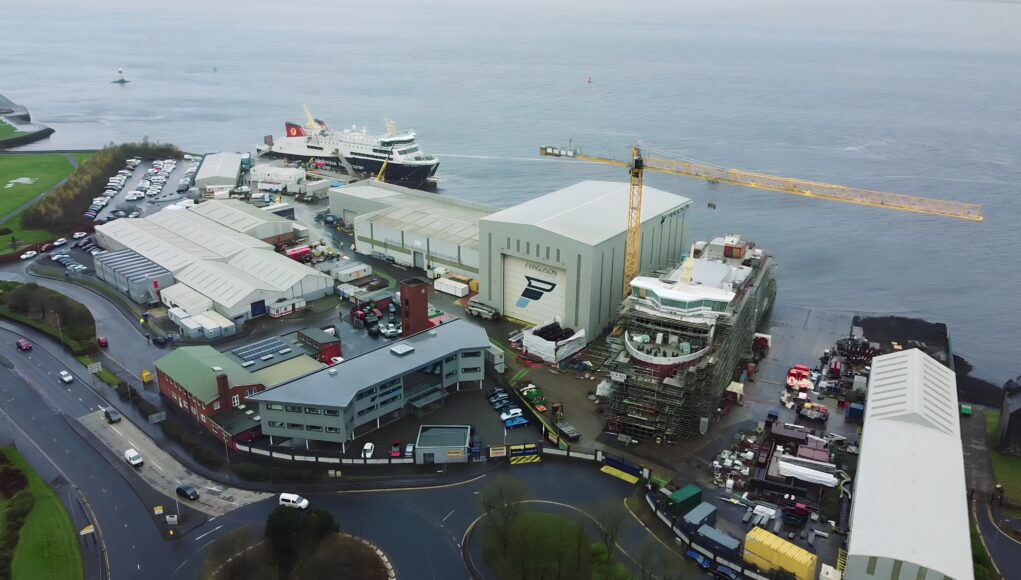

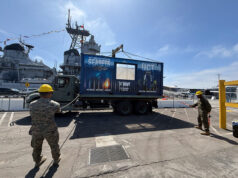
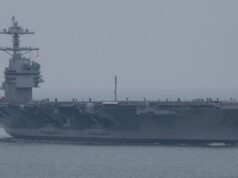
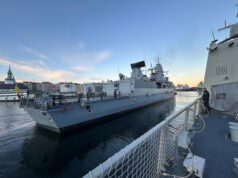
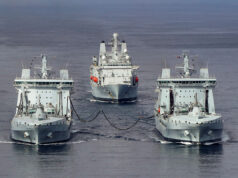






We play ‘fair’ while other countries break the rules!
To be totally fair regenerating Inchgreen would costs a few £100m in itself.
There are zero facilities there.
Workers require decent facilities to work efficiently and effectively.
The problem is not the skill base which could handle the DEPC (design, engineering, procurement and construction) it is the lack of cheap credit required to finance the shipbuilding industry.
Scotland cannot compete with the cheap state finance provided to yards in Turkey, China etc.
I get that the Subsidy Control Act won’t allow money to be handed to anyone, but if this procurement is being ran under the Public Contracts Scotland Regulations 2015, does Regulation 13 of this not allow a Public body (Cal Mac or CMAL) to contract direct with another body without a tender (Fergusons) who are more than 80% controlled or funded by them and are therefore deemed an arms length iteration of them? One for their lawyers.